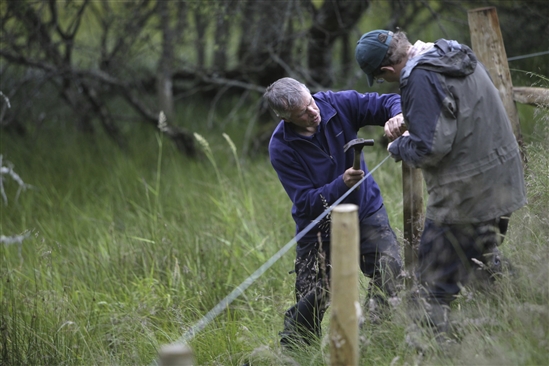The power of volunteering

Volunteers fencing at Insh Marshes (Andy Hay, rspb-images.com)
Volunteers are a crucial part of RSPB Scotland, allowing us to deliver our day to day conservation helping to protect our country’s wonderful wildlife and habitats. But more than that, charities like the RSPB were founded by volunteers, and throughout our long history the role of volunteers, from every walk of life, age and background…